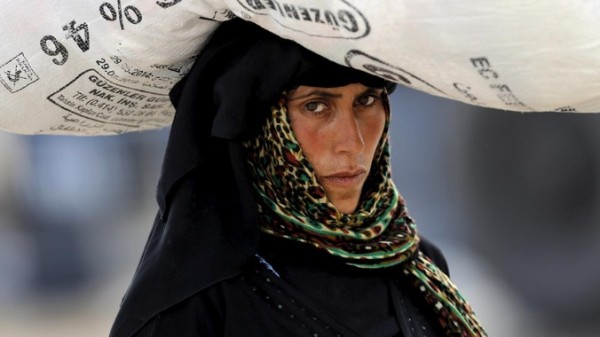PBS: Escaping Eritrea … [Read More...] about ካብ ውሽጢ ቤት ማእሰርታት ኤርትራ
EU summit: Migrant crisis top of agenda
Danny Kemp |
Delegates will discuss a controversial plan for a new European Union force that could shore up borders without the host country’s consent.
EU leaders will tackle Britain’s reform demands and the migration crisis at a summit on Thursday, twin challenges that threaten the unity of the bloc as one of the toughest years in its history draws to a close.
The 28 leaders will first debate a controversial plan for a new European Union force that could shore up borders without the host country’s consent, to stem a record flow of migrants including refugees from warzones like Syria.

Over dinner in Brussels, Prime Minister David Cameron will then set out his reform demands for the first time to his counterparts, aiming for a deal at the next summit in February to prevent a “Brexit” from the EU.
Cameron has vowed to “get a great deal for the British people” before holding a referendum on Britain’s membership by the end of 2017, which could see it become the first country to leave the bloc.
But the debate promises to be stormy as the other 27 leaders are almost unanimously opposed to Cameron’s main demand – a four-year wait before EU migrants working in Britain can claim welfare benefits.
German Chancellor Angela Merkel, Europe’s most powerful leader, warned on the eve of the summit that the EU’s integration was “not up for debate”, while EU president Donald Tusk said there would be “no taboos”.
“We still have a serious problem and we don’t know how to move forward on the welfare issue,” a senior EU official said.
The official urged Cameron to be “specific and open” about his demands so that there could then be “guidance from leaders” on the next steps, including possible alternatives to the migrant plan.
The debate in Britain has also been fuelled by concerns over the migration crisis – the worst of its kind in Europe since World War II – which has seen nearly a million people arrive on the continent this year.
‘Unified continent’ ideal under threat
The summit wraps up an annus horribilis for the EU which has seen it confront overlapping crises – Ukraine, Greece, migration, the Paris attacks and Britain – that have threatened the post-war dream of a unified continent.
In many cases the root problem has been the same – ideals of monetary and geographical union without the political architecture to back it up. But calls for “more Europe” fly in the face of an increasingly sceptical European electorate.
Amid rising populism and fears the EU’s Schengen passport-free zone could collapse, a divided EU has held a string of emergency summits on the crisis this year to find a solution.
The latest scheme is a new border and coastguard force with 1 500 quick-reaction agents and the “right to intervene” in states that are not protecting their borders properly – whether or not that country agrees.
EU leaders have urged the bloc to secure its borders, both because of the migrant crisis but also for security reasons highlighted by November’s terror attacks in Paris.
But the border plan unveiled on Tuesday could cause a row at Thursday’s summit, with Poland branding it “shocking” and others concerned by a loss of sovereignty to Brussels.
Other plans have been bogged down by divisions, with a deal for EU states to take in 160 000 refugees from overburdened Greece and Italy resulting in just 208 people being relocated so far, largely due to opposition from eastern Europe.
Meanwhile a $3.2-billion EU deal with Turkey – which is currently home to more than two million Syrian refugees – to stop migrants coming to Europe has yet to bear fruit.
Underscoring the rifts, eight EU leaders from a so-called “coalition of the willing” headed by Merkel will hold a mini-summit with Turkish Prime Minister Ahmet Davutoglu ahead of the main meeting to discuss resettling refugees directly from Turkey.
But EU leaders do look to have avoided divisions on sanctions against Russia over the Ukraine conflict, with officials saying they are unanimous about rolling them over for six months.
Italy had insisted on delaying the decision so that it could be discussed at the summit.
They will also discuss monetary union in the wake of the debt crisis that nearly drove Greece out of the euro earlier this year.
